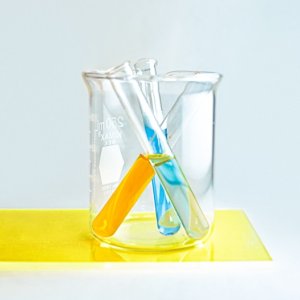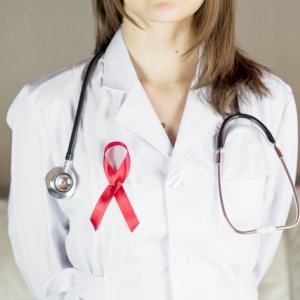Organon Aims to Maximize Women’s Access to Healthcare

STORY INLINE POST
Q: Organon is a spinoff of Merck (MSD). Why did this separation to focus on women’s health make sense?
A: There were two important factors that determined this decision. First, MSD has diverse therapeutic areas with clearly forecasted market needs. Among those, in the past four to five years, MSD decided to focus on categories such as nutrition science and vaccines. Everything else inside the portfolio of MSD primary care was not a priority because it was not patented. Second, women’s health products required a completely different focus from MSD because they present different growth opportunities. For those reasons, the portfolios separated.
Inside a global business worth US$6.5 billion, women’s health products represent US$1.7 billion. The decision was made because MSD had a significant portfolio of women’s products and saw an opportunity for growth as there was no other company of that size. We are the only company present in over 140 world markets that specifically dedicates itself to developing products that improve women’s health.
Q: What alliances have helped you consolidate the brand in Mexico or Latin America?
A: We are still relatively new in the region as we began operations in June 2021. But in less than a year, we have been able to develop four agreements, enabling the company to follow its mission of providing health products to women worldwide. The first target is birthing complications. Organon obtained the US company called Alydia Health that has a medical device that can stop partum hemorrhaging, which can be extremely risky for women giving birth and constitutes the main cause of death among women in reproductive age. This partnership shows our commitment to women’s health beyond pharmacies.
Today, we know that of every 10 women who die from birthing complications, three of those deaths are caused by partum hemorrhages. This should not be happening because the vast majority of those cases can be resolved with this device. This product comes from a smaller US company so we want to internationalize it and maximize access.
Another therapeutic area with unmet needs is endometriosis. We became partners with a company that is researching this field and polycystic ovary syndrome (PCOS). This company’s research, supported by Organon, will result in new products in the next four to six years, which we will be able to distribute globally.
Organon also recently acquired a line of products from China’s Marvelon, meaning the company is growing its portfolio beyond women’s health. Our product share for cardiovascular diseases, pain management and cholesterol is growing in Mexico and other regions, allowing us to raise the funds to invest in the development of products for women’s health.
Finally, our positioning in Mexico is supported by the presence of a manufacturing plant, located in Mexico City, to supply the needs of the Mexican market – in addition to Latin American, Canadian, Australian and Asian markets.
Q: What potential do you see in the Mexican market for products for women’s health and other specialties?
A: We see great potential in the Mexican market. We have a contraceptive product used by younger women that prevents pregnancy for three years. Mexico has the highest number of teenage pregnancies in the OECD. We need to facilitate access to contraceptive products so each woman can find the contraceptive method that is right for her. This product is effective in preventing pregnancy among teenagers.
The Mexican market is important for this product due to the private market’s interest in women’s health and the Mexican government’s decision to address teenage pregnancy. There are many opportunities for the health sector to maximize access to contraceptive products to prevent pregnancies. There are also opportunities to work across companies, organizations and the public and private health sectors to reduce the pregnancy rate of women between 13 and 18 years old. Teenage pregnancies increase risk factors and women who had a teenage pregnancy often lead a different economic life than they would have had if they had had children later in life.
Q: In terms of R&D, how are you incorporating Mexico into these efforts?
A: Our strategy is to develop products for women’s health wherever we find an unmet health need. As a result, R&D in the country focuses on market monitoring. In the next two years, the company might be able to develop clinical trials in the country to introduce international technologies.
Q: What is the role of biosimilars in your strategy for Mexico?
A: We offer biosimilar products globally due to an agreement with a biosimilar company. In Mexico, we do not yet have them in our portfolio but we are looking into it. We need certain regulatory flexibility, which Mexico currently lacks, to launch these products into the market.
Q: What are your views on value-based healthcare models and how are they applicable in Organon’s areas of focus?
A: As a multinational company, it is essential that everything that we do and promote in the market is based on medical evidence. We do not promote products that have not been verified and approved by authorities and ourselves to ensure they provide a clear clinical public health benefit. We are willing to be part of the necessary dialogue.
We aim to maximize our manufacturing and want to increase our work in Mexico to become a company that is not only perceived for its commercial benefits but one that invests locally and works directly with local companies.
Organon, a spin-off of MSD, is a pharmaceutical company that focuses on psychiatry, reproductive medicine, contraception and anesthesia, among other specialties.








 By Miriam Bello | Senior Journalist and Industry Analyst -
Tue, 03/22/2022 - 13:00
By Miriam Bello | Senior Journalist and Industry Analyst -
Tue, 03/22/2022 - 13:00
















